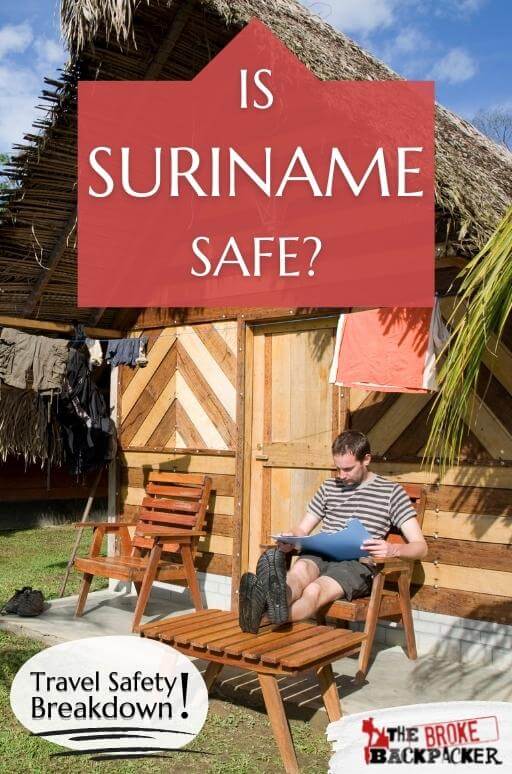Planning a trip to Suriname? Before you embark on your adventure, it’s crucial to be aware of some essential safety tips to ensure a smooth and worry-free journey. From navigating the bustling streets of Paramaribo to exploring the unspoiled rainforests, this article provides invaluable advice on how to stay safe while immersing yourself in Suriname’s vibrant culture and natural beauty. Whether you’re a solo traveler or part of a group, read on to discover the key precautions you need to take to make your experience in Suriname both unforgettable and secure.
Safety Tips for Travelers in Suriname
Suriname, a beautiful country located on the northeastern coast of South America, offers travelers a unique experience with its vibrant culture, stunning landscapes, and rich biodiversity. As with any travel destination, it is important to prioritize your safety to ensure a smooth and enjoyable trip. Whether you are exploring the bustling cities, venturing into the wilderness, or immersing yourself in the local customs, following these safety tips will help you make the most of your time in Suriname.
General Safety Tips
Research and Planning
Before embarking on your journey to Suriname, it is essential to conduct thorough research and plan your trip accordingly. Familiarize yourself with the local customs, laws, and regulations, as well as the current political situation. This will help you make informed decisions and be prepared for any unforeseen circumstances.
Stay Informed
Staying informed about the local news, weather conditions, and travel advisories is crucial to your safety. Subscribe to reliable news sources and check official government websites for any travel warnings or updates. It is also advisable to register with your embassy or consulate while visiting Suriname so that they can assist you in case of an emergency.
Travel Insurance
Purchasing travel insurance is highly recommended for any trip, including your visit to Suriname. This will provide you with financial protection in case of medical emergencies, trip cancellations, or lost luggage. Read the policy details carefully to ensure it covers all your travel needs.
Emergency Contacts
Make sure to have a list of emergency contact numbers readily available. This should include local emergency services, your embassy or consulate, as well as your travel insurance provider. Additionally, share your itinerary and contact details with a trusted family member or friend back home.
Stay Vigilant
While Suriname is generally safe for travelers, it is important to remain vigilant at all times. Keep an eye on your surroundings, particularly in crowded areas or tourist hotspots. Avoid displaying large amounts of cash or expensive jewelry, as this may attract unwanted attention.
Avoid Solo Night Travel
Traveling alone at night can increase the risks to your safety. If possible, plan your activities during daylight hours and avoid venturing out alone after dark. If you do need to travel at night, use reputable transportation options and stick to well-lit and populated areas.
Avoid Flashy Valuables
To minimize the risk of theft, avoid flaunting expensive gadgets or valuables while exploring Suriname. Keep your belongings secure and out of sight, especially in crowded spaces. When dining or shopping, be cautious with your personal items and keep them within your reach at all times.
Safe Lockers and Bags
When staying in accommodations, make use of safe lockers or safes to store your valuables, passports, and important documents. If you carry a backpack or bag, ensure it has reliable locks and consider using a small padlock for added security. Avoid leaving your belongings unattended, even in seemingly safe environments.
Blend In with the Locals
To enhance your safety and avoid standing out as a tourist, try to blend in with the local population as much as possible. Dress modestly and respectfully, following the local customs and traditions. This will not only help you stay safe but also contribute to a more immersive cultural experience.
Avoid Street Demonstrations
While Suriname is generally peaceful, there may be instances of street demonstrations or protests. It is advisable to avoid participating in or being near such gatherings, as they can sometimes turn volatile. Stay updated on local news and follow the guidance of authorities to ensure your safety.
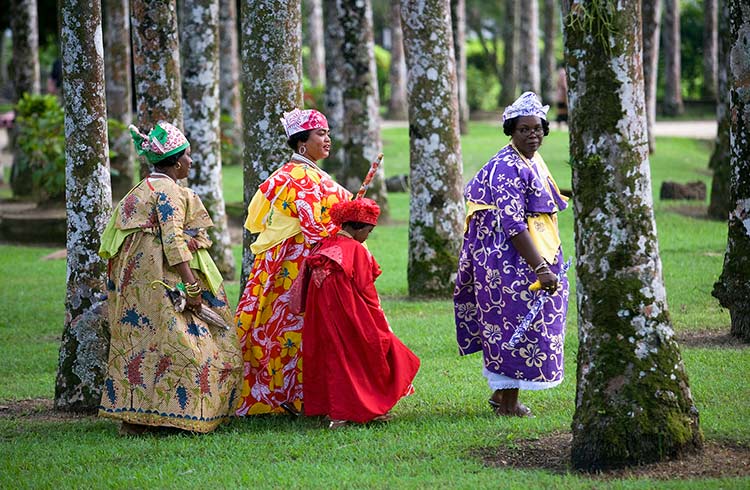
Health Safety Tips
Vaccinations and Medical Check-ups
Before traveling to Suriname, consult with your healthcare provider to ensure that you have the necessary vaccinations and medications for a safe trip. Common immunizations recommended for Suriname include hepatitis A and B, typhoid, yellow fever, and tetanus. It is also a good idea to undergo a thorough medical check-up to ensure you are in good health for your journey.
Safe Drinking Water
To prevent water-related illnesses, it is important to consume safe drinking water in Suriname. Stick to boiled, filtered, or bottled water and avoid drinking tap water or using it to brush your teeth. When purchasing bottled water, check the seal to ensure it is intact.
Food Safety
Suriname offers a wide array of delicious local cuisine to tantalize your taste buds. However, to avoid foodborne illnesses, exercise caution when consuming street food or eating at local establishments. Ensure that fruits and vegetables are properly washed and peeled, and opt for fully cooked meals. It is also advisable to bring along digestive aids such as over-the-counter medications.
Insect Protection
Suriname is known for its tropical climate, making it a suitable environment for various insects, including mosquitoes. Protect yourself from insect bites by using mosquito repellents containing DEET, wearing long-sleeved shirts and pants, and staying in accommodations with air conditioning or screened windows. Additionally, consider using bed nets and treating your clothing with permethrin.
Sun Protection
With Suriname’s close proximity to the Equator, the sun’s rays can be intense. Protect your skin from sunburn and long-term damage by wearing sunscreen with a high SPF, a wide-brimmed hat, and sunglasses. Seek shade during the hottest hours of the day and stay hydrated to avoid heat-related illnesses.
Carry a First Aid Kit
Having a well-stocked first aid kit is essential for any traveler. Include items such as bandages, antiseptic wipes, pain relievers, insect repellent, and any personal medications you may require. Familiarize yourself with basic first aid procedures and keep emergency contact numbers handy.
Know Emergency Medical Facilities
Before your trip, identify the locations of nearby hospitals, clinics, and pharmacies. Take note of their contact information and operating hours. In case of a medical emergency, knowing where to seek assistance will save precious time and ensure prompt medical care.
Altitude Sickness Precautions
If you plan on exploring Suriname’s interior regions, where some areas are at higher altitudes, be aware of the risk of altitude sickness. Take it slow and allow your body to acclimatize gradually. Stay properly hydrated, avoid excessive exertion, and consult a healthcare professional if you experience severe symptoms such as dizziness, headache, or shortness of breath.
Hygiene Practices
Maintaining proper hygiene is essential to prevent illnesses while traveling in Suriname. Wash your hands regularly with soap and clean water, or use hand sanitizers when soap is not available. Avoid touching your face and mouth with unwashed hands, and carry wet wipes or tissues to clean surfaces before use.
Stay Hydrated
In Suriname’s warm and humid climate, it is important to stay hydrated to avoid dehydration. Drink plenty of fluids, such as bottled water, coconut water, or fruit juices. Carry a reusable water bottle and refill it from reliable sources, ensuring it is properly sealed. Avoid excessive consumption of alcohol and caffeinated beverages, as they can contribute to dehydration.
Transportation Safety Tips
Choose Reliable Transportation
When traveling within Suriname, opt for reliable and reputable transportation options. Use licensed taxis or car rental services that have a good reputation. If possible, book your transportation in advance to ensure a smooth and safe journey.
Public Transportation Safety
Suriname offers various modes of public transportation, including buses and minibusses known as “alibis.” While these can be convenient and budget-friendly, exercise caution when using them. Be aware of pickpockets and keep your belongings secure. Avoid overcrowded vehicles and sit near the driver or a fellow passenger for added security.
Driving Safety Tips
If you plan to drive in Suriname, familiarize yourself with the local traffic rules and regulations. Ensure that you have a valid driver’s license and carry it with you at all times. Be cautious of reckless driving practices and always wear your seatbelt. Avoid driving at night, as poor lighting and road conditions can pose additional risks.
Motorcycle and Bicycle Safety
If you choose to explore the streets of Suriname on a motorcycle or bicycle, prioritize your safety by wearing a helmet and appropriate protective gear. Follow traffic rules and signals, and be cautious of other vehicles on the road. Avoid riding in unfamiliar areas or during adverse weather conditions.
Seatbelts and Child Restraints
Whenever you are traveling by car, ensure that all occupants wear seatbelts. If you are traveling with young children, make sure they are properly secured in child safety seats appropriate for their age and size. Follow the local regulations regarding child restraints to ensure their safety in the vehicle.
Road Conditions and Hazards
Suriname’s road conditions can vary, especially in more remote areas. Be alert for potholes, uneven surfaces, and unexpected obstacles. Drive cautiously and be prepared for unexpected road hazards. In case of heavy rain, be aware of potential flooding and avoid driving through water-covered roads.
Avoid Traveling at Night
Although Suriname’s major roads are generally well-maintained, it is advisable to avoid traveling at night, especially in rural or remote areas. Poor lighting and visibility can make driving more hazardous. If you must travel after dark, use caution and drive defensively.
Be Aware of Robberies on Public Transportation
Instances of robberies on public transportation, particularly buses, have been reported in Suriname. Avoid displaying valuable items, keep your belongings secure, and be vigilant throughout your journey. If you notice any suspicious activity, notify the driver or authorities.
Keep Important Documents Secure
When traveling, it is important to keep your important documents, such as passports, visas, and identification, secure at all times. Make copies of these documents and store them separately from the originals. Consider using a money belt or a secure travel pouch to carry them discreetly under your clothing.
Have Backup Transportation
When planning your itinerary in Suriname, have a backup transportation plan in case of unforeseen circumstances or changes to your original travel arrangements. This can help you avoid being stranded in unfamiliar areas or facing delays in reaching your intended destinations.
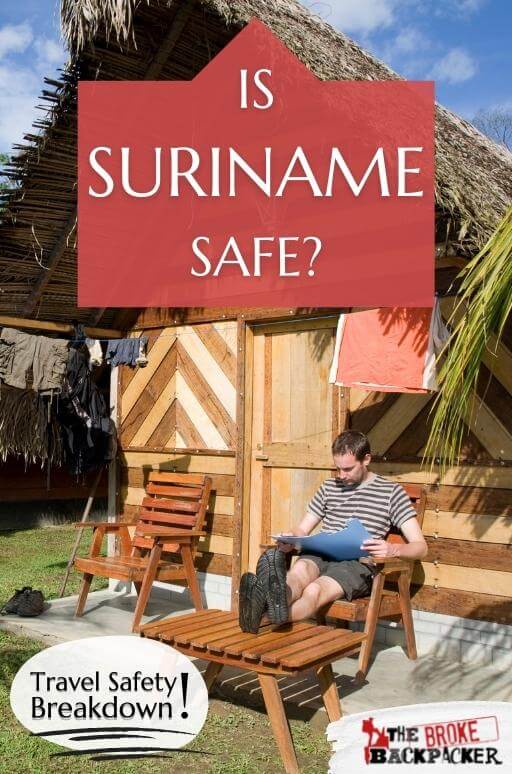
Accommodation Safety Tips
Research Safe Accommodation Options
When choosing accommodation in Suriname, research various options and prioritize safety. Look for reputable hotels, guesthouses, or resorts with positive reviews and reliable security measures. Consider factors such as location, proximity to emergency services, and previous guests’ experiences.
Check Online Reviews
Before making a reservation, check online reviews from previous guests to get an idea of other travelers’ experiences at the accommodation you are considering. Pay attention to their comments regarding safety, cleanliness, and the reliability of the staff.
Choose Well-Lit and Secure Areas
Upon arrival at your accommodation, request a room in a well-lit and secure area of the property. Avoid ground floor rooms or those near exits that may be more susceptible to break-ins. If possible, choose accommodations with direct access to your room from the outside to reduce the need to pass through common areas.
Use Electronic Room Safes
Most hotels in Suriname offer electronic room safes for guests to store their valuables. Take advantage of this feature and store your passports, cash, jewelry, and other important items securely. Set a unique combination or password for the safe and avoid using easily guessable codes.
Lock Doors and Windows
Upon entering your room, ensure that all doors and windows are properly locked. Use the additional security measures available, such as deadbolts or chains, to reinforce the door’s integrity. Keep curtains or blinds closed, especially at night, to prevent outsiders from easily seeing inside your room.
Use Hotel Transportation
When navigating around the city, it is often safer to use hotel transportation or reputable taxi services rather than hailing a random taxi from the street. This reduces the risk of encountering unlicensed or unauthorized drivers. Ask the hotel staff for recommendations or assistance in arranging safe transportation.
Beware of Scams
While Suriname is generally a safe country, scams can happen anywhere. Be cautious of individuals offering unsolicited services or deals that seem too good to be true. Avoid sharing personal or financial information with strangers and only transact with reputable businesses or service providers.
Keep Valuables Secure
When leaving your accommodation, take precautions to secure your valuables. Use the room safe or hotel lockers whenever possible. If these options are not available, consider utilizing a portable safe or locking your valuables in your luggage and using a reliable padlock to deter potential theft.
Report Suspicious Activities
If you observe any suspicious activities or have concerns about safety at your accommodation, report them immediately to the hotel staff or management. They are there to assist you and will take appropriate action to ensure your safety and address any issues that arise.
Inform the Hotel About Your Plans
Before venturing outside your accommodation, inform the hotel staff about your plans, including your expected time of return. This ensures that someone knows your whereabouts and can assist you if needed. It also helps the staff monitor your safety and be aware of any unusual or unforeseen circumstances.
Outdoor Safety Tips
Be Prepared with Outdoor Gear
If you plan to explore Suriname’s natural landscapes and engage in outdoor activities, ensure you have appropriate gear and equipment. This may include comfortable hiking shoes, rain gear, insect repellent, a hat, sunglasses, and a backpack with essentials such as water, snacks, a map, and a flashlight.
Weather and Terrain Awareness
Stay informed about the local weather conditions and be aware of potential changes. Suriname’s climate is tropical, so anticipate high humidity and heavy rainfall. Check weather forecasts before heading out and adjust your plans accordingly. Additionally, familiarize yourself with the terrain you will be exploring to ensure preparedness and safety.
Inform Others about Your Plans
Before embarking on any outdoor adventure, inform a trusted friend or family member about your plans. Provide them with details such as your intended route, estimated time of return, and the contact information of any local guides or tour operators you may be utilizing. This way, someone will know if you fail to return as scheduled.
Travel with a Guide
Consider hiring a knowledgeable local guide or joining a guided tour when exploring Suriname’s wilderness areas. They can provide valuable insights, ensure your safety, and help navigate unfamiliar terrain. Follow their instructions and recommendations to decrease the risks associated with venturing into unfamiliar environments.
Beware of Dangerous Animals
Suriname is home to a diverse range of wildlife, some of which may pose risks to humans. Familiarize yourself with local wildlife, including dangerous or venomous species, and learn how to respond appropriately if you encounter them. Keep a safe distance, avoid disturbing their natural habitats, and follow any guidance provided by guides or local authorities.
Follow Trail Signs
When hiking or exploring designated trails, always follow trail signs and markers. These indicators help prevent getting lost and increase your safety by keeping you on established paths. Venturing off-trail can lead to accidents, damage fragile ecosystems, and increase the risk of encountering dangerous wildlife.
Use Sunscreen and Insect Repellent
Shield your skin from the harsh sun and potential insect bites by applying sunscreen with a high sun protection factor (SPF) and using insect repellent. Reapply these products as directed. Protecting yourself from sunburn and insect-borne diseases will contribute to your overall well-being and enhance your outdoor experience.
Emergency Communication Devices
When venturing into remote areas with limited cell phone coverage, consider carrying emergency communication devices such as satellite phones or personal locator beacons. These devices can help you send distress signals and alert authorities in case of emergencies or if you become lost.
Learn Basic Wilderness First Aid
Having some knowledge of wilderness first aid is beneficial when venturing into Suriname’s outdoor regions. Learn basic first aid skills that are specific to the local environment, such as treating snakebites or insect stings. Consider taking a wilderness first aid course before your trip to acquire essential skills and confidence.
Stay on Designated Paths
When exploring Suriname’s natural beauty, stay on designated paths and trails whenever possible. Straying off the designated routes can contribute to erosion, damage delicate ecosystems, and increase the risk of encountering hazards. Respect the environment and tread lightly to preserve the pristine landscapes for future generations.
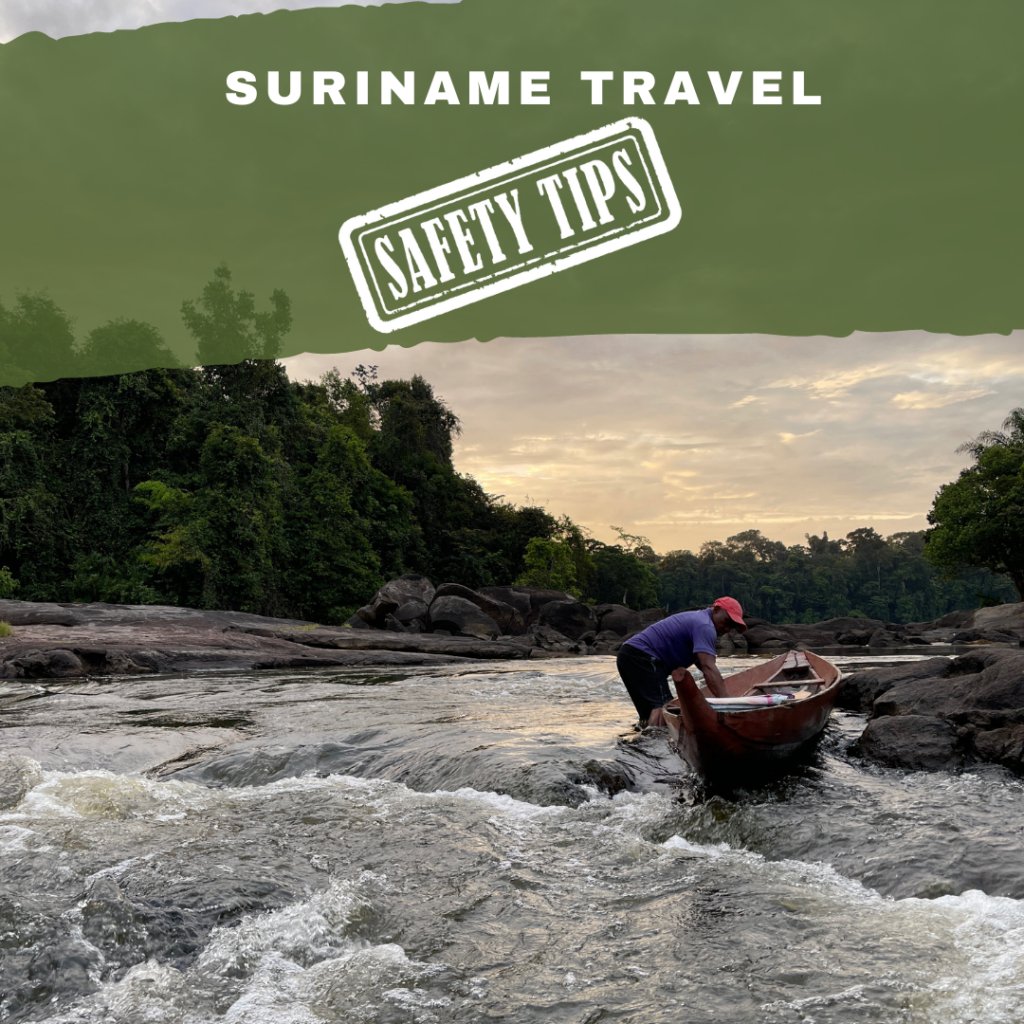
Hiking Safety Tips
Know the Trail Conditions
Before embarking on a hiking adventure, obtain updated information about the trail conditions. This can be done by consulting local authorities, guides, or reputable hiking organizations. Be aware of any closures, potential hazards, or adverse weather conditions that may affect your safety.
Hike with a Group
Hiking with a group is not only enjoyable but also contributes to your safety. Joining a guided hiking tour or exploring with fellow travelers significantly reduces the risk of accidents and ensures there is help available should an emergency arise. If hiking without a guide, inform someone about your intended route and estimated time of return.
Carry Essential Supplies
When hiking in Suriname, always carry essential supplies in your backpack. These may include water, snacks, a map, compass or GPS device, a first aid kit, extra clothing, a flashlight, insect repellent, a whistle, a multi-tool, and a waterproof jacket or poncho. Pack your bag wisely, ensuring it is not too heavy and does not hinder your movement.
Layer Clothing Appropriately
Suriname’s weather can be unpredictable, especially in mountainous areas. Dress in layers to easily adjust to changing temperatures and weather conditions. Start with a moisture-wicking base layer, add insulation for warmth, and top with a waterproof and wind-resistant outer layer. Opt for light and breathable fabrics to maximize comfort during your hike.
Study the Map and Terrain
Before setting out on a hike, study the map of the area and familiarize yourself with the terrain. Be aware of the trail difficulty, elevation changes, and any potential challenges or hazards along the way. Knowing the route in advance will help you navigate with confidence and make informed decisions during your hike.
Leave No Trace
Responsible hiking entails leaving no trace of your presence in the natural environment. Respect the pristine beauty of Suriname’s wilderness by adhering to the principles of Leave No Trace. Pack out all trash, dispose of waste properly, minimize campfire impact, and be mindful of the flora and fauna surrounding you.
Be Cautious of Wildlife
While encountering wildlife can be an exciting experience, it is important to be cautious and respectful. Keep a safe distance from animals and avoid feeding or approaching them. Remember that wild animals are unpredictable and can become aggressive if they feel threatened. Observe from a distance and enjoy their beauty in their natural habitat.
Have a Plan for Emergencies
Prepare for emergencies by having a well-thought-out plan in place. Share your hiking itinerary with someone you trust and inform them of the estimated time of return. Familiarize yourself with emergency procedures, such as how to call for help or administer basic first aid in case of injuries or unexpected circumstances.
Practice Safe Camping
If camping overnight during your hiking trip, choose a safe and suitable campsite. Set up your tent in a flat and elevated area away from potential hazards, such as rivers or boulders. Observe fire safety measures, secure your food to prevent attracting wildlife, and be mindful of local regulations regarding camping and open fires.
Check Weather Forecast
Before starting your hike, check the weather forecast for the duration of your trip. Suriname’s weather can change quickly, and being aware of any approaching storms or adverse weather conditions will help you make informed decisions. Consider postponing your hike if the weather poses a significant risk to your safety.
Water Safety Tips
Swimming Safety
Suriname offers various opportunities for swimming, whether it’s in the ocean, rivers, or natural pools. Practice swimming safety by only swimming in designated areas with lifeguards present, if possible. Observe any warning signs and adhere to their instructions. Always swim with a buddy, especially in unfamiliar or fast-moving bodies of water.
Drowning Prevention
To prevent drowning incidents, it is important to be vigilant and take necessary precautions. Avoid swimming alone or in areas with strong currents, as they can be unpredictable and potentially dangerous. If you are not a strong swimmer, consider wearing a life jacket or other appropriate flotation devices while in the water.
Water Activities Caution
Engaging in water activities such as kayaking, rafting, or boating can be exhilarating and enjoyable. However, it is crucial to prioritize safety. Always wear appropriate life jackets or personal flotation devices, follow the instructions of experienced guides, and respect the rules and regulations governing water activities in Suriname.
Check Safety Standards
When participating in water-based activities, ensure that the operators or rental companies adhere to proper safety standards. Verify that they have appropriate licenses and certifications, maintain their equipment well, and provide comprehensive briefings regarding safety procedures. Your safety should be their top priority.
Beware of Strong Currents
Suriname’s rivers can have strong and swift currents, especially during the rainy season. Avoid crossing or swimming in rivers with strong currents, as they can pose significant risks, even to experienced swimmers. If you are uncertain about the water conditions, seek advice from local experts or guides.
Avoid Swimming Alone
To enhance your safety while swimming in Suriname, it is advisable to never swim alone. Always swim with a partner who is aware of your swimming abilities and can provide assistance if needed. If possible, choose swimming locations recommended by locals or reputable tour operators.
Be Aware of Marine Life
If you plan to swim or snorkel in Suriname’s coastal areas, be aware of the marine life present. Some species, such as jellyfish or certain fish, can pose risks to humans. Familiarize yourself with local marine life and follow any guidance provided by experienced individuals or authorities to ensure your well-being.
Follow Lifeguard Instructions
When swimming in areas with lifeguards, always follow their instructions and guidance. They are trained to ensure the safety of all swimmers and will provide information regarding the water conditions, currents, and any potential hazards. Be attentive to their instructions and promptly adhere to any safety measures they communicate.
Use Safety Equipment
When engaging in water activities such as boating, kayaking, or paddleboarding, always use appropriate safety equipment. This includes life jackets, helmets, and any other gear specifically designed for the activity. Ensure that the equipment is in good condition and fits properly to maximize its effectiveness.
Stay Hydrated
While enjoying water activities in Suriname, it is important to stay hydrated. Drink plenty of fluids to replenish your body’s water levels, especially in the warm and humid climate. Carry a water bottle and refill it regularly from reliable sources. Staying hydrated will help prevent dehydration and related health issues.
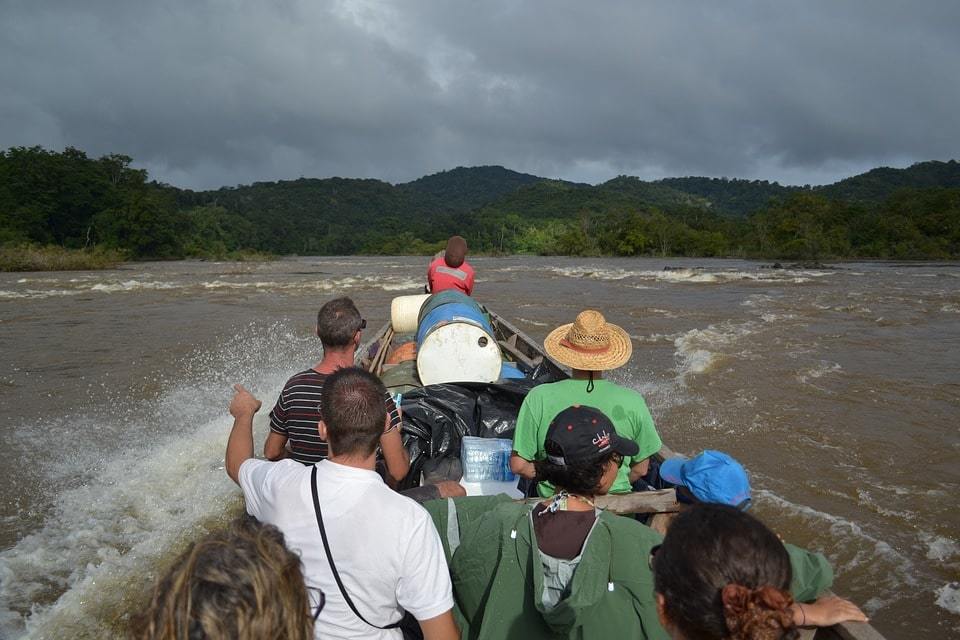
Wildlife Safety Tips
Respect Wildlife from a Distance
When encountering wildlife in Suriname, it is essential to remember that these creatures are in their natural habitat. Respect their space and observe them from a safe distance. Getting too close or attempting to touch or feed them can disrupt their behavior and may be dangerous for both you and the animals.
Do Not Feed Animals
Feeding animals in the wild can have detrimental effects on their health and natural behavior. It may also encourage them to associate humans with food, leading to potentially harmful interactions. Never feed wildlife in Suriname, and dispose of your food waste properly to avoid attracting animals to your vicinity.
Avoid Touching or Approaching Animals
While Suriname is home to fascinating wildlife, it is important to resist the temptation to touch or approach animals. Maintain a safe distance and use binoculars or camera zoom lenses to observe them. Some animals may have protective instincts or be carriers of diseases that can be transmitted to humans.
Stay on Marked Trails
When exploring Suriname’s natural areas, stick to marked trails and designated paths. Straying off-trail can disturb the habitats of wildlife and disrupt their natural behaviors. It also increases the risks of encountering dangerous plants or animals and getting lost. Respect the environment by following established trails.
Be Cautious with Snakes
Suriname is home to various snake species, including venomous ones. While many are harmless, it is important to exercise caution and remain alert. Keep a safe distance from all snakes and avoid touching or attempting to handle them. Familiarize yourself with the appearance and behaviors of venomous species and know how to respond if bitten.
Be Aware of Insect Hazards
Insects are abundant in Suriname’s tropical environment, and some may pose risks to humans. Protect yourself from insect-borne illnesses by using appropriate insect repellents, wearing long-sleeved clothing, and staying in accommodations with screens or air conditioning. Be cautious of biting insects, such as mosquitoes or ticks, and take preventive measures to avoid being bitten.
Campsite Precautions
When camping in Suriname’s wilderness, take precautions to minimize encounters with wildlife. Choose designated campsites where possible, as these are often situated away from animal habitats. Properly store your food and garbage in sealed containers to discourage animals from approaching your campsite. Dispose of waste responsibly and leave no trace behind.
Secure Food and Garbage
To prevent attracting wildlife to your surroundings, properly secure your food and garbage. Use sealed containers or hang your food in a durable bag from a tree branch, out of reach of animals. Clean up any food scraps or debris after meals and dispose of them in designated trash receptacles.
Store Food Properly
When staying in accommodations, store your food properly to prevent attracting wildlife. Keep perishable items refrigerated in sealed containers and non-perishable items in airtight packaging. If necessary, ask the hotel staff for assistance or use communal refrigerators if provided. This will deter unwanted animal visitors and help maintain cleanliness.
Do Not Litter
Respect Suriname’s beautiful natural environment by refraining from littering. Always dispose of your trash in designated receptacles or carry it with you until you find appropriate disposal facilities. Litter can be harmful to wildlife, pollute water sources, and negatively impact the delicate ecosystems that make Suriname so unique.
Navigating Cities and Towns
Stick to Well-Lit and Populated Areas
When navigating cities and towns in Suriname, stick to well-lit and populated areas, especially during nighttime. Avoid areas that appear deserted or unfamiliar. Stick to main streets and well-known neighborhoods, where there are likely to be more people around and a higher level of security.
Carry Essential Items Only
To minimize the risk of theft or loss, carry only essential items with you while exploring cities and towns in Suriname. Leave unnecessary valuables, excessive cash, or expensive gadgets in a secure location, such as a hotel safe. Carry a small amount of cash for immediate needs and use a money belt or hidden pouch to keep it discreet.
Protect Your Personal Belongings
When out and about in Suriname, protect your personal belongings to prevent theft or loss. Keep your bag or backpack close to your body, preferably in front of you, and securely closed. Avoid placing valuables in easily accessible pockets and be cautious of your surroundings to deter potential pickpockets.
Avoid Using Unmarked Taxis
When using taxis in Suriname, it is advisable to stick to licensed and marked taxis. Unmarked or informal taxis may lack the necessary permits and can be associated with higher risks. Use reputable taxi stands or ask your hotel to arrange a reliable transportation service on your behalf.
Be Mindful of Street Scams
As in any tourist destination, street scams can occur in Suriname. Be cautious of individuals offering unsolicited services, overly friendly strangers, or deals that seem too good to be true. Maintain a healthy level of skepticism and trust your instincts. If something feels off or suspicious, it is best to walk away.
Use Reliable Transportation Apps
In Suriname’s urban areas, using reliable transportation apps for ordering rides or finding directions can be advantageous. These apps provide transparency in terms of pricing, allow you to share your location with others, and offer an additional layer of security. Choose reputable apps that have good user reviews and ratings.
Ask for Local Recommendations
To enhance your experience in Suriname’s cities and towns, ask locals for recommendations regarding places to visit, dine, or shop. Locals are often the best source of information about safe and authentic experiences. Engaging with the local community can also foster cultural exchange and enrich your travel experience.
Be Careful with Street Food
Suriname is known for its delicious street food, offering a wide variety of flavors. However, it is important to exercise caution when indulging in street food. Choose vendors who maintain clean cooking and serving practices. Opt for food that is freshly cooked and served hot to minimize the risk of foodborne illnesses.
Avoid Walking Alone at Night
As a general safety precaution, avoid walking alone at night, particularly in unfamiliar or dimly lit areas. If you need to move around after dark, consider using transportation services or arranging for a trusted companion to accompany you. Stick to well-lit and populated routes to minimize the risk of encountering potential dangers.
Trust Your Instincts
Above all, trust your instincts when navigating cities and towns in Suriname. If a situation or location feels unsafe or uncomfortable, listen to your gut feeling and remove yourself from it. Your intuition is a valuable tool that can help keep you out of harm’s way and ensure your overall safety while traveling.
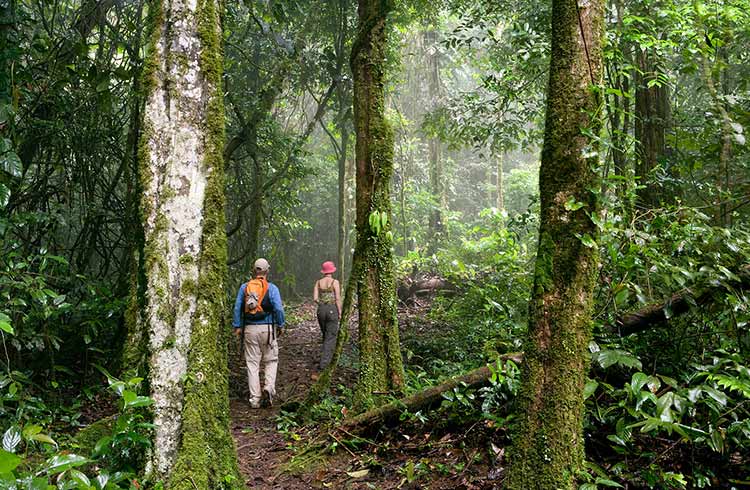
Cultural Sensitivity Tips
Respect Local Customs and Traditions
Cultural sensitivity is essential when traveling in Suriname. Respect the local customs, traditions, and ways of life. Familiarize yourself with basic etiquette and appropriate behaviors, such as greetings, gestures, and dress codes. Be open-minded and receptive to different perspectives to foster mutual respect and understanding.
Learn Basic Local Phrases
Learning basic local phrases in Suriname’s official languages, such as Dutch and Sranan Tongo, can go a long way in showing respect and building connections with the local community. Greetings, simple phrases of gratitude, and basic numbers are a good starting point for effective communication and cultural exchange.
Dress Modestly in Religious Sites
Suriname is home to diverse religious communities, and it is important to dress modestly when visiting religious sites, such as temples, mosques, or churches. Cover your shoulders, chest, and knees, and remove your shoes if required. Observe the local customs and follow the guidance of local worshippers or religious leaders.
Ask Permission before Taking Photos
When taking photographs in Suriname, be respectful and ask for permission before photographing individuals, especially when it involves children or people engaged in private activities. Not everyone may be comfortable with having their photo taken, and it is essential to respect their privacy and personal boundaries.
Follow Etiquette in Temples and Monasteries
When visiting temples and monasteries in Suriname, follow the specific etiquette and codes of conduct observed by the respective religious communities. This may include removing your shoes, covering your head, refraining from certain behaviors or actions, and maintaining a respectful and quiet demeanor.
Adapt to Local Attitudes
To foster positive interactions, adapt to the local attitudes and norms in Suriname. Be aware of the pace of life, social expectations, and appropriate behaviors in different settings. This flexibility and adaptability will help you connect with locals on a deeper level and create more meaningful experiences.
Be Respectful to Elders and Authorities
In Surinamese culture, respect for elders and authorities is highly valued. Show reverence and deference to older individuals, and address them using appropriate honorifics if required. Interact politely with local authorities, such as police officers or government officials. Demonstrating respect can foster positive interactions and enhance your overall experience.
Learn About Local Laws and Regulations
Familiarize yourself with the local laws and regulations of Surinamese society to ensure you act within the legal framework during your visit. Educate yourself on topics such as drug laws, photography restrictions, and rules regarding protected natural areas. Respect the laws and be mindful of your actions to avoid any legal complications.
Avoid Public Displays of Affection
Surinamese society tends to be modest and conservative regarding public displays of affection. To show respect for the local culture, limit public displays of affection, such as kissing or embracing, to more private settings. Follow the lead of locals and observe their behavior in social contexts.
Respect Sacred Places
Suriname is home to sacred places, including culturally significant sites and natural landmarks. Show respect by observing any rules or restrictions in place, refraining from touching or removing any items, and maintaining a reverent attitude. Avoid loud or disruptive behavior that may disturb the sanctity of these places.
By following these safety tips and guidelines, you can enjoy a safe and memorable trip to Suriname. Remember to prioritize your well-being, respect the local culture, and embrace the unique experiences this beautiful country has to offer. Safe travels!
